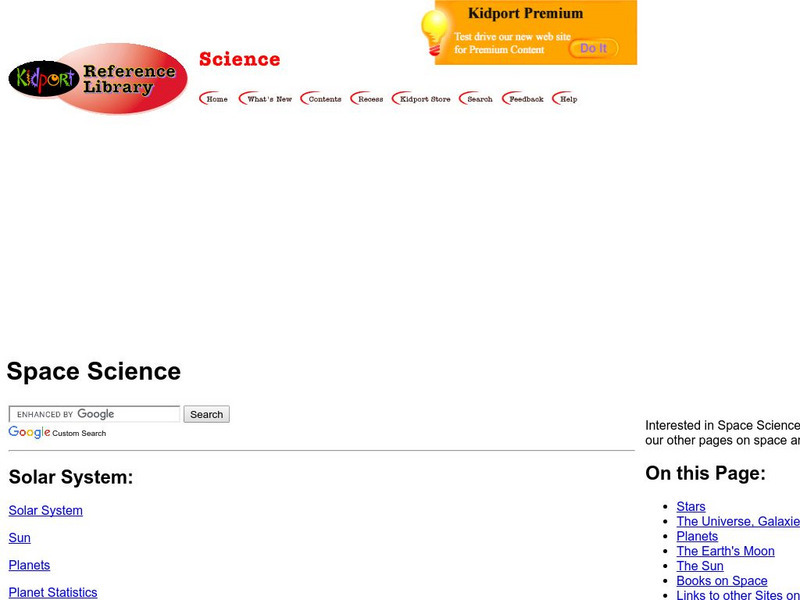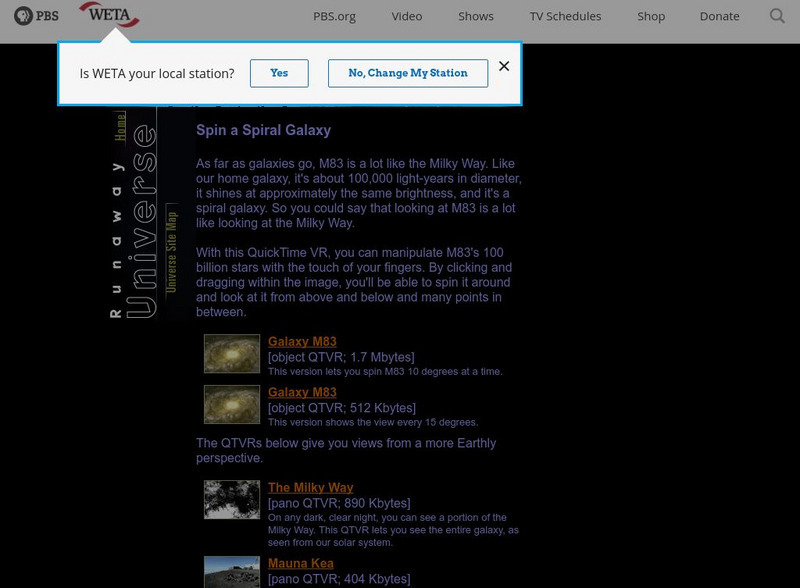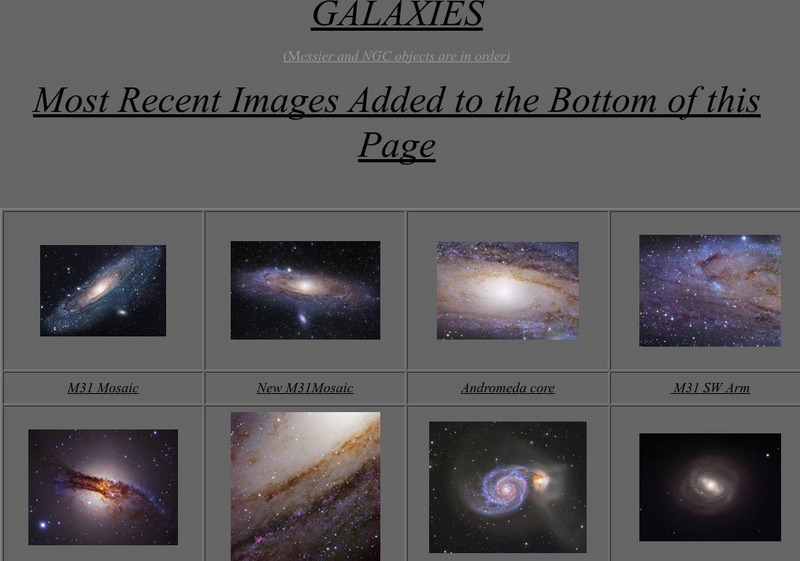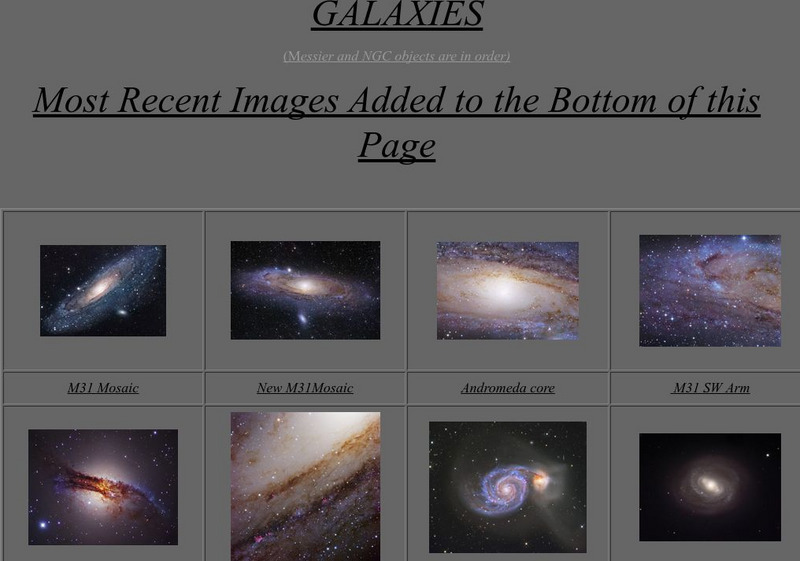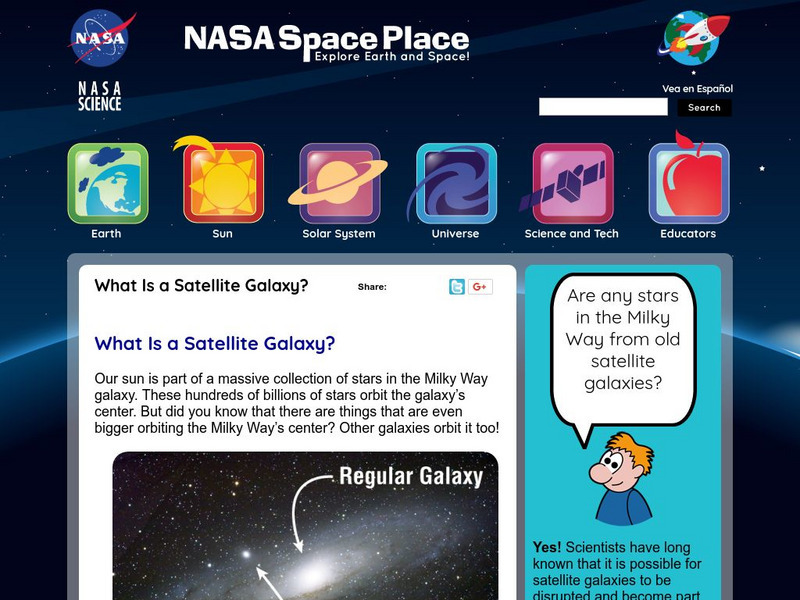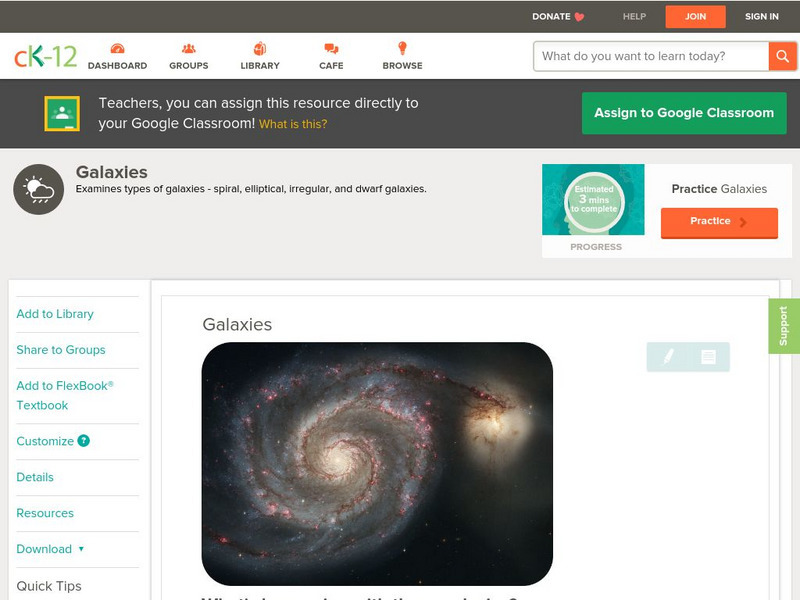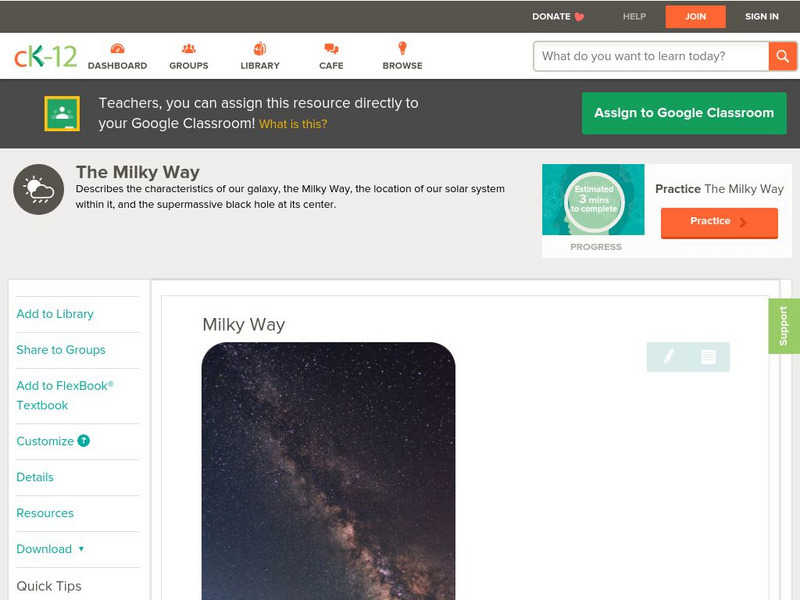Hi, what do you want to do?
Space Telescope Science Institute
Amazing Space: Galaxy Hunter
Journey to the wildest regions of space, and wrestle with cosmic giants, galaxies. Explore the Hubble Deep Fields from a statistical point of view.
Ministerio de Educación (Spain)
Ministerio De Educacion: Cuasares Y Otras Galaxias Activas Modulo Vii Unit 3
In this module you can learn about the active galaxies, quasars and the effect of the gravitational lens.
Ministerio de Educación (Spain)
Ministerio De Educacion: Las Galaxias Modulo Vii Unidad 2
In this module you can learn about galaxies, their morphology classification, masses, distances, etc.
Kidport
Kidport: Space Science
This complete resource will help students to improve their understand of space exploration. Includes images of the universe, galaxies, stars and planets.
Wikimedia
Wikipedia: The Black Hole
This site examines the black hole as an object in astrophysics. Delve into this comprehensive resource that covers this concept from its history, to qualitative physics, the reality of black holes, mathematical physics and more.
TED Talks
Ted: Ted Ed: What We Can Learn From Galaxies Far, Far Away
By studying the properties of the universe's largest pieces we can learn quite a lot about our own world and galaxy. [6:43]
TED Talks
Ted: Ted Ed: How Small Are We in the Scale of the Universe?
In 1995, scientists pointed the Hubble Telescope at an area of the sky near the Big Dipper. The location was apparently empty, and the whole endeavor was risky- what, if anything, was going to show up? But what came back was nothing...
American Association of Physics Teachers
Com Padre Digital Library: Physics to Go: Explore Physics on Your Own
Contains a full physics curriculum with links to games, webcasts, and activities. By creating a free account, students and teachers can create their own personal collection of resources.
PBS
Pbs: Nova Online: Galaxies, Clusters, and Superclusters
PBS site explores these building blocks of the universe as well as their various types and clusters.
PBS
Pbs Nova Online: Spin a Spiral Galaxy
PBS site provides various views of spiral galaxies. (Quick Time required) With this technology, you can manipulate the image to spin it around and look at it from various angles.
California Institute of Technology
Ipac: Iras Gallery
This site from IPAC is a series of images of various celestial objects and regions as viewed in infrared light. Each photo is accompanied by a caption.
Other
Astrophotography: Galaxies
Numerous high quality images of galaxies can be found in this site. Names, exposure times, and various magnifications are provided.
Other
Astrophotography: Galaxies
Numerous high quality images of galaxies can be found in this site. Names, exposure times, and various magnifications are provided.
Other
Astromador: Astronomia Para Amadores
This resources focuses exclusively on astronomy. It's packed with historical facts about space exploration, famous people who pioneered the study of stars and planets. It features chronological list of space exploration, current news,...
Space Telescope Science Institute
Galaxy Hunter: A Cosmic Photo Safari
Travel the universe and learn about galaxies. Investigate Hubble Deep Field observations to learn more.
Australian Museum
Australian Museum: The Earth: The Universe
Basic information about the universe, its origin and composition. Also includes information about galaxies, stars, and the sun.
NASA
Nasa: Space Place: What Is a Satellite Galaxy?
Find out about the behavior and characteristics of the many satellite galaxies that orbit other galaxies.
NASA
Nasa: Imagine the Universe: Dark Matter
Site provides an introduction to dark matter and what it really is. Provides links to a quiz as well as facts about dark matter. Offers links to additional resources as well as related topics.
Seeker
Seeker: Galaxies Undergo Dramatic Metamorphosis
Article reports on the changes galaxies have experienced that can be observed with the Hubble telescope.
Space Telescope Science Institute
Amazing Space: Galaxies
What is a galaxy? What is the name of our galaxy? Site offers answers to these questions as well as many more.
CK-12 Foundation
Ck 12: Earth Science: Expansion of the Universe
[Free Registration/Login may be required to access all resource tools.] Recognize how redshift suggests the universe is expanding.
CK-12 Foundation
Ck 12: Earth Science: Galaxies
[Free Registration/Login may be required to access all resource tools.] Examines galaxies and how they are divided into three types according to shape.
CK-12 Foundation
Ck 12: Earth Science: Milky Way
[Free Registration/Login may be required to access all resource tools.] Identify the shape and size of the Milky Way and where our solar system is located in the Milky Way.








